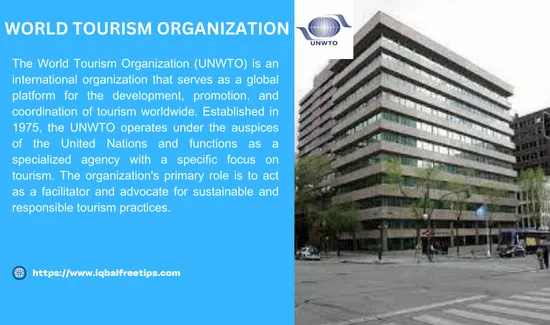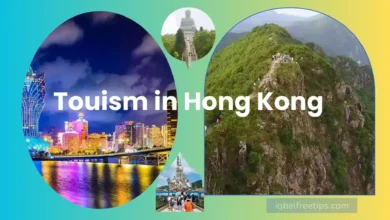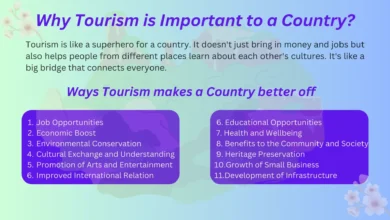
What is the World Tourism Organization? (UNWTO)
The World Tourism Organization (UNWTO), a specialized agency of the United Nations, plays a crucial role in the development and promotion of global tourism. With a mission to foster sustainable and inclusive tourism practices, the UNWTO serves as a central platform for international cooperation and knowledge exchange in the tourism sector. This article explores the significance of the World Tourism Organization, its objectives, initiatives, and its impact on the global tourism industry.
More Read: International Year of Sustainable Tourism for Development
The Role and Objectives of the World Tourism Organization
The World Tourism Organization (UNWTO) is an international organization that serves as a global platform for the development, promotion, and coordination of tourism worldwide. Established in 1975, the UNWTO operates under the auspices of the United Nations and functions as a specialized agency with a specific focus on tourism. The organization’s primary role is to act as a facilitator and advocate for sustainable and responsible tourism practices.
The objectives of the World Tourism Organization can be categorized into three main areas.
- Promoting Sustainable Development.
- Fostering Knowledge and Education.
- Facilitating International Cooperation
Promoting Sustainable Development
One of the core objectives of the UNWTO is to promote tourism as a driver of sustainable economic growth, social inclusion, and environmental preservation. The organization recognizes the potential of tourism to contribute to the achievement of the United Nations’ Sustainable Development Goals (SDGs). It encourages member countries to develop tourism policies and strategies that prioritize sustainability, considering economic, social, and environmental aspects.
Fostering Knowledge and Education
The UNWTO plays a crucial role in knowledge creation, dissemination, and capacity building in the tourism sector. The organization conducts research, collects data, and produces reports on tourism trends, market analysis, and best practices. It provides a platform for sharing knowledge and experiences among member countries, tourism stakeholders, and academia. Through training programs and workshops, the UNWTO supports the development of human resources and professional skills in the tourism industry.
Facilitating International Cooperation
The UNWTO acts as a forum for international cooperation, bringing together governments, private sector entities, and international organizations to collaborate on tourism-related issues. The organization encourages dialogue and partnerships to address common challenges and opportunities in the tourism sector. It provides a platform for sharing experiences, exchanging information, and establishing best practices. The UNWTO also assists member countries in formulating tourism policies, developing sustainable tourism strategies, and enhancing destination competitiveness.
The World Tourism Organization (UNWTO) plays a vital role in the global tourism landscape through various initiatives and activities.
Here are further details on the role and objectives of the UNWTO.
- Crisis Management and Resilience
- Market Development and Promotion
- Ethical and Responsible Tourism.
- Tourism Statistics and Measurement
- Tourism and Technology
- Tourism Ethics and Social Responsibility
- Advocacy and Partnerships
Crisis Management and Resilience
The UNWTO takes an active role in crisis management and building resilience in the tourism sector. It provides support to member countries in preparing for and responding to crises such as natural disasters, health emergencies, and security concerns. The organization develops guidelines and frameworks for crisis management, risk assessment, and recovery strategies to ensure the long-term sustainability of tourism destinations.
Market Development and Promotion
The UNWTO promotes tourism as a driver of economic growth and development by facilitating market development and promotion. It conducts targeted marketing campaigns, participates in international travel fairs, and organizes events that showcase tourism products and destinations. Through its efforts, the organization aims to increase the visibility and competitiveness of member countries’ tourism offerings in the global marketplace.
Ethical and Responsible Tourism
The UNWTO advocates for ethical and responsible tourism practices that minimize negative impacts and maximize benefits for host communities and the environment. The organization promotes principles of sustainable tourism, including cultural preservation, community engagement, biodiversity conservation, and resource efficiency. It works with governments, businesses, and communities to develop guidelines and standards for responsible tourism development and management.
Tourism Statistics and Measurement
The UNWTO collects, analyzes, and disseminates tourism statistics and data to provide reliable and up-to-date information on tourism trends, market dynamics, and visitor behavior. The organization develops methodologies and standards for data collection and reporting, enabling member countries to measure the economic, social, and environmental impacts of tourism accurately. This information is crucial for evidence-based decision-making and policy formulation.
Tourism and Technology
Recognizing the transformative potential of technology in the tourism sector, the UNWTO promotes the adoption and integration of innovative technologies. The organization encourages the use of digital platforms, data analytics, artificial intelligence, and other technologies to enhance tourism experiences, improve destination management, and drive innovation and competitiveness in the industry.
Tourism Ethics and Social Responsibility
The UNWTO places a strong emphasis on promoting tourism ethics and social responsibility. It encourages member countries and tourism stakeholders to adhere to ethical principles, such as respecting human rights, combating exploitation, promoting gender equality, and fostering inclusive tourism practices. The organization provides guidance on responsible tourism policies and initiatives that contribute to social inclusivity and the well-being of host communities.
Advocacy and Partnerships
As a specialized agency of the United Nations, the UNWTO acts as a global advocate for the tourism sector. It represents the interests of member countries and engages in dialogue with international organizations, governments, and other stakeholders to influence policies, regulations, and frameworks related to tourism. The UNWTO actively seeks partnerships with public and private entities to drive sustainable tourism development and leverage resources for the benefit of its members.
What are the Benefits of the World Tourism Organization?
The World Tourism Organization (UNWTO) is a specialized agency of the United Nations that promotes tourism as a driver of economic growth, inclusive development, and environmental sustainability. UNWTO provides a number of benefits to its Member States, including.
- Technical assistance.
- Research and data.
- Standards and guidelines
- Networking.
Technical Assistance
UNWTO provides technical assistance to Member States to help them develop and implement sustainable tourism policies and strategies.
Research and Data
UNWTO collects and analyzes tourism data, which it makes available to Member States to help them make informed decisions about tourism development.
Standards and Guidelines
UNWTO develops standards and guidelines for tourism, which help to ensure that tourism is developed in a responsible and sustainable way.
Networking
UNWTO provides a forum for Member States to network with each other and share best practices.
Advocacy: UNWTO advocates for the interests of the tourism industry at the international level.
Conclusion
This article has provided an overview of the World Tourism Organization (UNWTO) and its significant role in the global tourism industry. By promoting sustainable development, fostering knowledge and education, and facilitating international cooperation, the UNWTO plays a crucial part in shaping the future of tourism. Through its initiatives in crisis management, market development, ethical tourism, statistics, technology, and advocacy, the UNWTO contributes to a responsible and inclusive tourism sector. This article highlights the importance of the UNWTO’s efforts in driving economic growth, social inclusivity, and environmental preservation. By recognizing the UNWTO’s role and objectives, we can better understand the impact and value of sustainable tourism practices worldwide.
You may like:
How to Plan a Trip in 10 Simple Steps?
What is a Bachelor of Tourism Studies?




